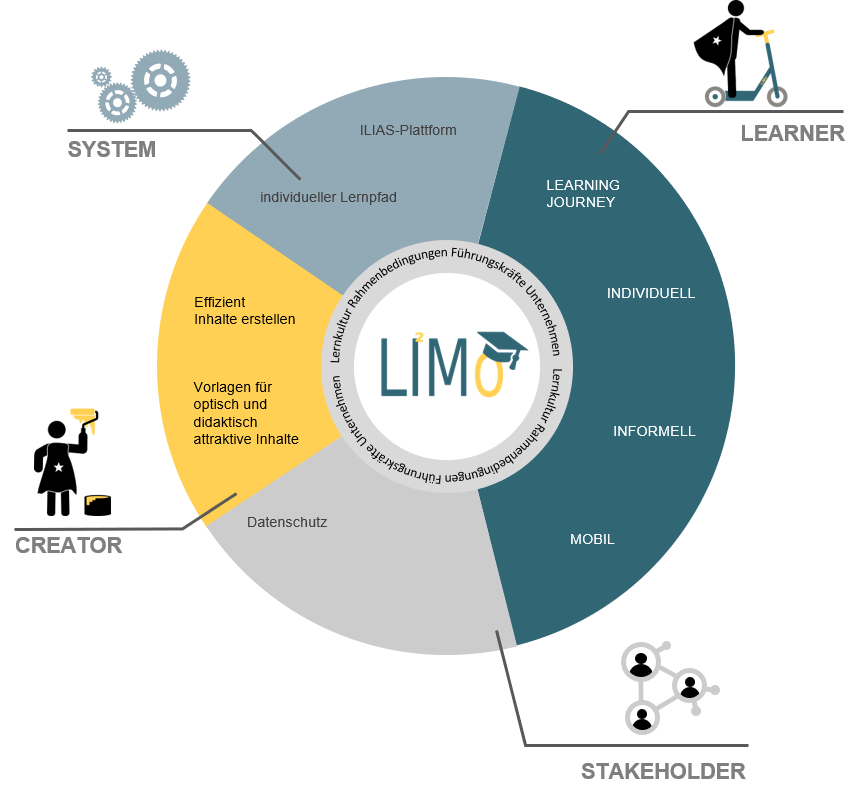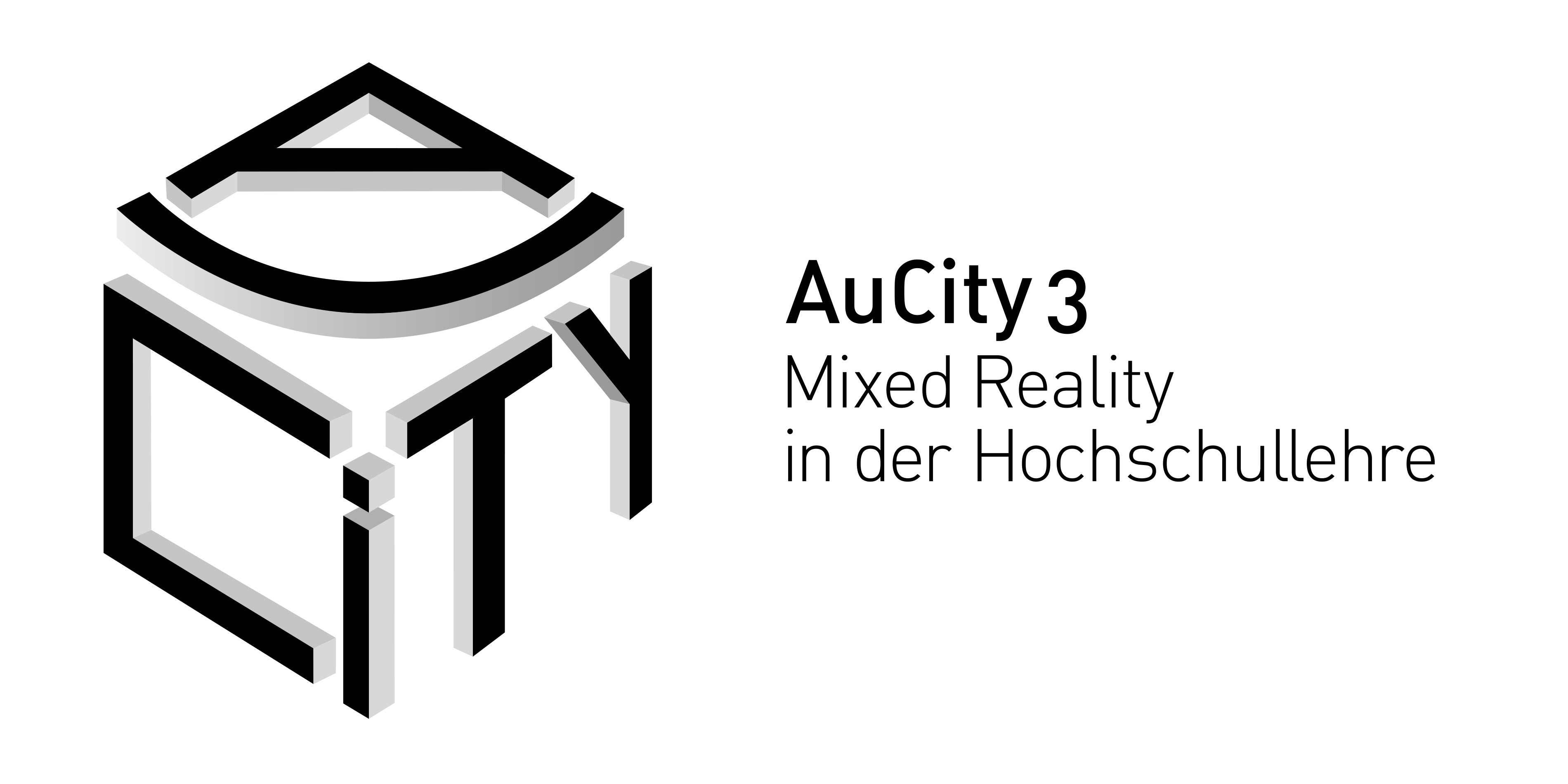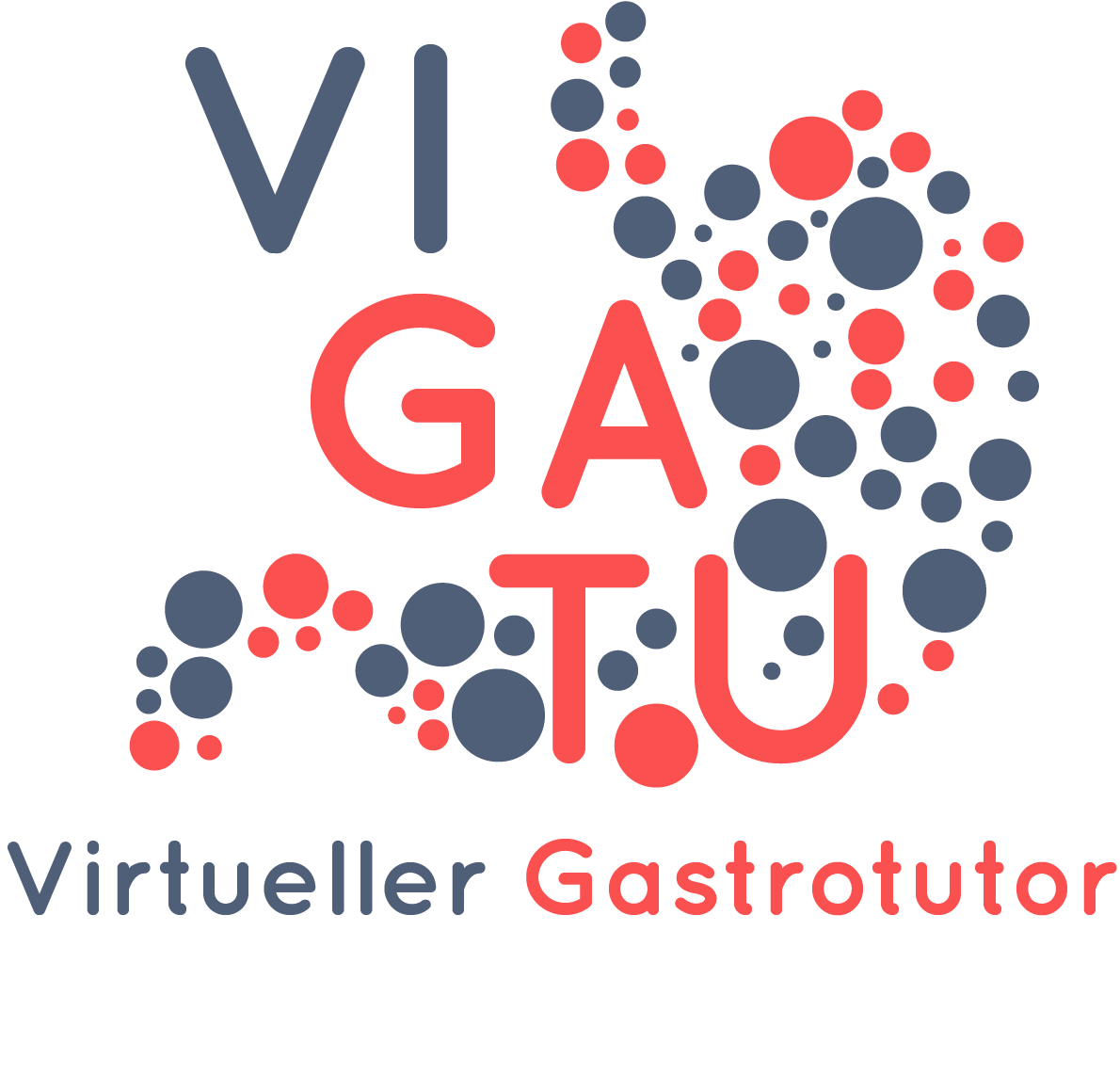Research and Projects
Our department is concerned with research questions on the subject of teaching and learning. Research focuses on learning with new media and the promotion of self-regulation of the learner and the use of effective learning strategies.
In addition to typical learning studies in the laboratory, we conduct field studies in order to develop and analyze effective instructional design for higher education and further education.
Current research projects
2LIKE – Artificial Intelligence for Individualised Learning Path and Processes
#adaptivity #learningpaths #learningprocesses #individualization #digitallearning #artificialintelligence
Project Management Agency: Federal Ministry of Education and Research (BMBF)
Duration: 2021 – 2025
Link to project pages:
www.uni-ulm.de/einrichtungen/saps/projekte/2like/
www.uni-ulm.de/in/ki/research/projekte/2like/

The heterogeneity of students requires the provision of learning content or learning support to be much more tailored to the individual than is possible within traditional teaching formats. There is consequently a high demand for individualized support.
In the 2LIKE project, individualized digital learning opportunities are being developed on two levels: On the macro level, individualized learning paths offer the possibility to compensate for deficits or to deepen learning content in a competence-oriented way. On the micro level, personalized feedback supports individual learning processes. Both adaptivity approaches use AI-supported methods and best practices of automated teaching and learning systems.
Expertise from the fields of computer science, teaching-learning research, as well as SAPS with regard to in-service master's degree programs and the productive operation of teaching/learning infrastructure is available for the realization of the project.
LIMO – Learning Journey. Individual. Informal. Mobile.
#professionallearners #informallearning #e-learning #prompts #adaptivity #furthereducation #mobilelearning
Project executing agency: Federal Ministry of Education and Research
Duration: 01.09.2021 - 30.09.2024
Link to homepage:
projekt-limo.de/das-limo-projekt/projektziel/

LIMo is an interdisciplinary project consisting of computer scientists, (learning) researchers and companies. Our goal is to provide demand- and user-oriented further education for professional learners. The findings are implemented on the open source learning platform ILIAS. This includes, for example, an improved search function for learning material, the mobile presentation of existing e-learning content, and the promotion of informal learning. Our focus as learning researchers is, in particular, to strengthen self-learning skills in informal learning environments.
AuCity 3 – Collaborative and Adaptive Mixed Reality in Higher Education Using Civil Engineering as an Example
#virtualreality #mixedreality #augmentedreality #highereducation #adaptivity #collaboration #learningoutcomes
Project sponsor: Federal Ministry of Education and Research (BMBF)
Duration: 01.03.2022 - 31.08.2024
Link to the homepage:
www.uni-weimar.de/aucity3

»AuCity 3« is an interdisciplinary project supported by Magdeburg-Stendal University of Applied Sciences, Bauhaus University Weimar, and Ulm University. It follows the first phase »AuCity 2« and is funded by the Federal Ministry of Education and Research (BMBF) with a grant amounting to 1,551,000 euros.
In this collaborative project, we are convinced that Mixed Reality (MR) - the expansion of human's natural perception with artificial, digital perception - can positively influence learning and understanding of complex issues, particularly in civil engineering. Through MR, real objects and spaces such as streets, bridges, or buildings can be enriched with additional, computer-generated information like formulas or explanations. Hidden influencing factors such as soil structure, CO2 emissions, or thermodynamics become visible and tangible for the viewer.
The focus of the research lies on the design features of adaptivity and collaboration in higher education. Adaptivity allows for adjusting the learning environment individually to the learner, while collaboration promotes joint learning and working. These approaches can enhance understanding and learning experience in the field of civil engineering.
We are working on testing and optimizing these technologies in the context of higher education. With the support of the BMBF, we confidently look forward to the coming years of research and development in this exciting and future-oriented field.
ViGaTU – Virtual Gastro-Tutor
#virtualreality #cognitiveapprenticship #selfregulatedlearning #prompts #metacognition #vocationaltraining #medicaleducation
Project executing agency: Federal Ministry of Education and Research
Funding line: "Digital media in vocational training in the health professions (DigiMed)".
Duration: 01.05.2020 – 31.12.2023
Link to homepage:
www.endoscopy-campus.com/literatur/vigatu/

Since 1 May 2020, the Federal Ministry of Education and Research (BMBF) has been funding the project "Guideline-compliant work by means of virtual reality for doctors and non-medical staff in endoscopy (ViGaTu)". The aim of the project partners - Würzburg University Hospital, Ulm University, ThreeDee GmbH and Bildungswerk e.V. - is to develop a cost-effective and widely applicable VR simulation of an endoscopy environment for qualification purposes.
Learners are given the opportunity to acquire the necessary competences and skills in the sense of the cognitive apprenticeship approach in an authentic but protected setting. For the initial, self-directed teaching of the guideline-compliant procedure, interactive presentations and self-tests are initially provided on the Moodle learning platform. Finally, learners can rehearse the application in the VR simulation. In the process, the degree of guidance is gradually reduced until the learners can independently apply the gained competences and skills to different tasks.
The research interest from the perspective of teaching and learning research is, among other things, the understanding and support of metacognitive processes in the VR environment.
